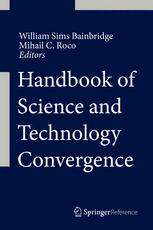

Most ebook files are in PDF format, so you can easily read them using various software such as Foxit Reader or directly on the Google Chrome browser.
Some ebook files are released by publishers in other formats such as .awz, .mobi, .epub, .fb2, etc. You may need to install specific software to read these formats on mobile/PC, such as Calibre.
Please read the tutorial at this link: https://ebookbell.com/faq
We offer FREE conversion to the popular formats you request; however, this may take some time. Therefore, right after payment, please email us, and we will try to provide the service as quickly as possible.
For some exceptional file formats or broken links (if any), please refrain from opening any disputes. Instead, email us first, and we will try to assist within a maximum of 6 hours.
EbookBell Team

0.0
0 reviewsScientists and engineers have long been aware of the tension between narrow specialization and multidisciplinary cooperation, but now a major transformation is in process that will require technical fields to combine far more effectively than formerly in the service of human benefit. This handbook will catalog all the ways this can be accomplished and the reasons it must be. Nature is a single coherent system and diverse methods of scientific and engineering investigations should reflect this interlinked and dynamic unity. Accordingly, general concepts and ideas should be developed systematically in interdependence, with cause-and-effect pathways, for improved outcomes in knowledge, technology and applications. At the same time, industrial and social applications rely on integration of disciplines and unification of knowledge. Thus, convergence is both a fundamental principle of nature and a timely opportunity for human progress. This handbook will represent the culmination of fifteen years of workshops, conferences and publications that initially explored the connections between nanotechnology, biotechnology, information technology and new technologies based on cognitive science. A constant emphasis on human benefit then drew in the social sciences, even as shared scientific and ethical principles brought in sustainability of the Earth environment and the challenge of equitable economic advancement. The intellectual contributions of literally hundreds of scientists and engineers established a number of research methods and analytical principles that could unite disparate fields. The culmination has been called Convergence of Knowledge and Technology for the benefit of Society (CKTS), defined as the escalating and transformative interactions among seemingly different disciplines, technologies, communities and domains of human activity to achieve mutual compatibility, synergism and integration.